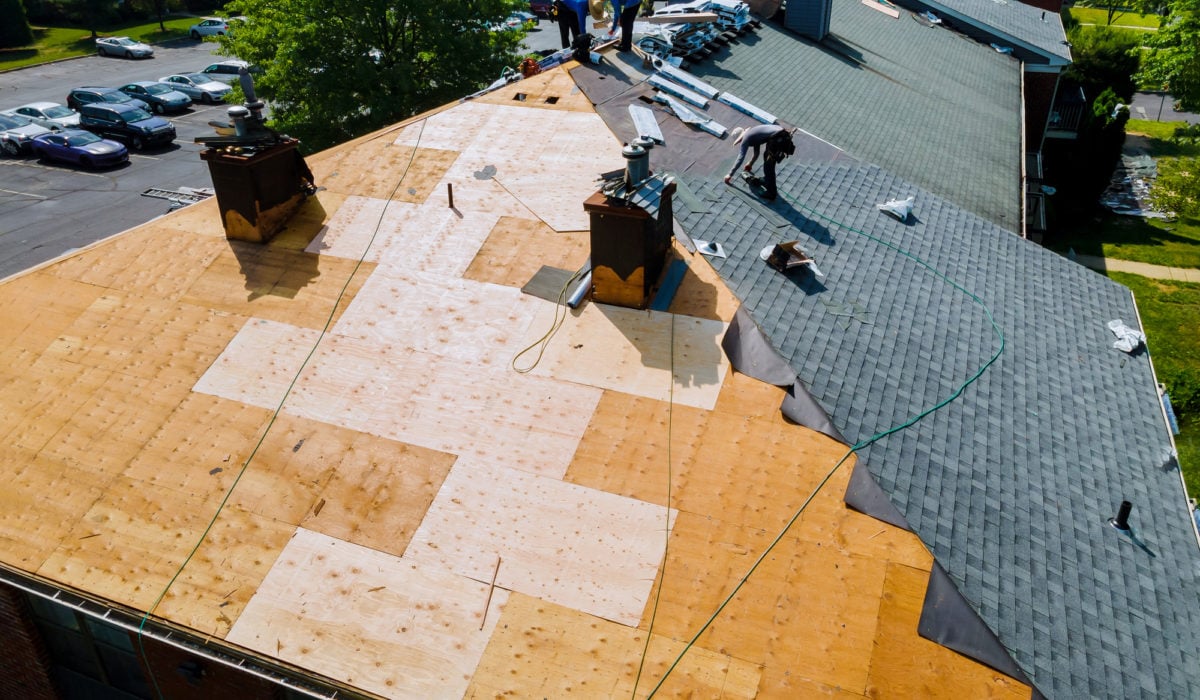- 0 Comment
Best Time of Year to Replace My Roof
Replacing a roof is a significant investment and a critical part of home maintenance. Whether you’re facing a roof that’s reached the end of its lifespan or you simply want to upgrade to a more energy-efficient and aesthetically pleasing option, timing is crucial. The question many homeowners ask is, “When is the best time of year to replace my roof?” In this blog post, we’ll explore the factors that influence the timing of a roof replacement and help you determine the ideal season for your project.
1. Weather Conditions
Weather plays a pivotal role in determining the best time to replace your roof. Ideally, you’ll want to schedule your roof replacement during a season with mild and predictable weather. The two best seasons for this purpose are spring and early fall.
Spring: Springtime brings milder temperatures and less precipitation in many regions. With the harsh winter behind and the scorching heat of summer yet to arrive, spring provides an ideal climate for roof replacement. However, keep in mind that spring is also a popular time for roofing projects, so you might need to schedule well in advance to secure the services of a reputable roofing contractor.
Early Fall: Early fall offers similar advantages to spring. The weather is generally stable, and the moderate temperatures ensure that the roofing materials adhere properly. Additionally, by replacing your roof in the fall, you’ll be prepared for the colder months ahead, when a sturdy roof is crucial to keep your home warm and dry.
2. Contractor Availability
Roofing contractors tend to be busiest during the spring and early summer months, thanks to the favorable weather conditions. If you plan your roof replacement during this period, it’s essential to book your contractor well in advance. Competition for their services can be fierce, so securing a slot on their calendar early is crucial.
Alternatively, consider scheduling your roof replacement during the less busy seasons, such as late fall or winter. While winter roofing comes with some challenges due to cold temperatures and potential ice and snow, it can be an option if you’re in dire need of a new roof and can’t wait until spring or fall. Just be prepared for potential delays due to weather-related setbacks.
3. Material Selection
The type of roofing material you choose can influence the ideal time for replacement. Asphalt shingles, the most common roofing material, can be installed year-round in most climates. However, some roofing materials, like certain types of metal roofing, might require specific temperature conditions for proper installation. Be sure to consult with your roofing contractor to determine if the material you’ve chosen is suitable for the season in which you plan to replace your roof.
4. Budget Considerations
Another factor to consider when timing your roof replacement is your budget. Roofing contractors might offer discounts during their off-peak seasons, which can make your project more affordable. Additionally, some materials and roofing services may be more expensive during peak roofing season due to high demand. If you’re looking to save money without compromising on quality, consider scheduling your roof replacement during a less busy time of the year.
5. Emergency Situations
In some cases, you may not have the luxury of choosing the timing for your roof replacement. If your roof has suffered significant damage, such as leaks or structural issues, waiting for the ideal season may not be an option. In emergency situations, it’s essential to address the problem promptly to prevent further damage to your home. Roofing contractors are generally available year-round for emergency repairs and replacements.
In conclusion, the best time of year to replace your roof depends on various factors, including weather conditions, contractor availability, material selection, budget considerations, and emergency situations. Spring and early fall are generally the most favorable seasons for roof replacements, but you can schedule your project at any time of the year with proper planning and precautions. Remember to consult with a reputable roofing contractor to assess your specific needs and choose the timing that works best for you and your home.

